In this text, Tajik blogger Roxana Burkhanova describes, in Russian, the place of holidays in Russian culture. She focuses on the two major holiday seasons: the New Year’s holidays and the May Holidays. The text was originally written in 2015 and thus references times before the current war. However, the vocabulary and the general cultural information remain largely the same, with holidays still celebrated with similar traditions and in similar scale.
The resource below is part of a larger series of intermediate Russian lessons known as Моя Россия, in which Roxana explores economic, demographic, and cultural issues in Russia. Моя Россия builds upon Olga’s Blog, another set of intermediate Russian lessons that give shorter texts that focus more on daily life and youth issues. All of these lessons have been sponsored by SRAS, an organization that encourages the study of Eurasia from abroad through free resources and offers study abroad programs in Eurasia.
We will start with a brief synopsis in English before presenting the Russian text. As the Russian text is somewhat dated, we have also provided a small update in English to the information presented there. All boldface words are vocabulary words that are defined and discussed below. Holidays have been linked to more information in our Guide to Russian Holidays. Red words and phrases are part of the grammar lesson included below that. Asterisks indicate slang or jargon.
Russian Days Off and Holidays: Synopsis and Update in English
According to Russian employment law, regular employees are entitled to a minimum of 28 calendar days of paid annual leave per year. In 2024, there were 18 days off mandated for public holidays. Thus, Russians not only love holidays and time off, they have legislated their rights to have time off – more than almost any other country in the world.
The largest Russian holidays are New Year’s – which will usually be a full work week off, with the weekends taken as well, giving at least nine days off. The May Holidays, which includes both Labor Day and Victory Day. Many Russians will often try to claim vacation days between the two holidays to give themselves roughly a week to a week-and-a-half off.
Some things have changed since the text below was first written in 2015. Many younger, urban, middle-class Russians once preferred to travel for holidays, especially over the May holidays. They would fly popular resort areas in Turkey or East Asia, for instance. Today, it is much harder for them to do so as the ruble has considerably weakened and international sanctions mean that bank cards issued from Russian banks no longer work abroad. Both of these challenges stem from the war in Ukraine.
This means that travel inside Russia, including “staycations” at dachas outside the city have become even more important to the local culture.
Русские любят выходные
Русские люди очень любят праздники. Наверное, они их любят даже больше, чем жители каких-либо иных стран. Мало того, что люди в России любят веселиться с размахом, так ведь еще к очень многим праздникам прилагается минимум хотя бы один день отдыха. Это ли не радость? Ведь русские очень любят отдыхать! Чем больше выходных, тем сильнее их ждут, а самые длинные выходные – это новогодние и майские праздники.
Новогодние праздники
Новый год является самым горячо любимым праздником. В новогодние праздники входят все дни с 31 декабря по 10 января (это почти две недели отдыха, официально утвержденные государством; в эти дни лучше не болеть и не ожидать доставки важной посылки на почту, ведь почти никто не работает: врача придется ждать долго, а почта большую часть этого времени остается попросту закрытой).
На эти дни приходится не только Новый год, но также и Рождество (по православному календарю оно выпадает на 7 января), которое все тоже очень любят праздновать. При этом оно – любимый праздник не только православных – Рождество превратилось в некое подобие национального праздника, и некоторые люди ставят его наравне с Новым годом.
Кроме Нового года и Рождества, есть еще и Старый Новый год (по старому календарю этот день приходился на Новый год), который выпадает на ночь с 13 на 14 января. Этот праздник воплощает в себе любовь россиян к веселью и застолью: вроде бы и официальные выходные уже закончились, пора работать, вроде бы это вовсе не праздник (ведь с новым календарем и Новый год перенесли на 13 дней раньше), но веселиться и отдыхать всем очень хочется!
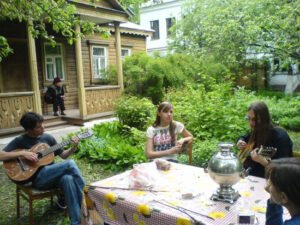
Mайские праздники
Другой так же горячо любимый русскими праздник – 9 мая (или День Победы). В этот день празднуется конец Великой Отечественной Войны (1941-1945): 9 мая 1945 года этот день был отпразднован в первый раз, тогда же прошел первый Парад Победы. С того момента в России на территории бывшего СССР День Победы празднуется каждый год.
В честь праздника объявляются три выходных дня. В день самого праздника русские встают пораньше, чтобы посмотреть праздничный парад, который проходит на Красной Площади с 10 часов утра. После парада обычно все выезжают в городские парки и в центр города – люди гуляют, возлагают цветы к мемориалам, посвященным погибшим воинам, дарят цветы ветеранам. Затем народ собирается на разных площадках, откуда можно увидеть салют; салют начинается в 10 часов вечера.
Символами праздника в России являются Георгиевская лента и красная гвоздика. Еще недели за две до праздника Георгиевскую ленту можно видеть повсюду, каждый носит ее, как хочет: кто прикалывает к одежде, кто привязывает бантом к сумке.
Загород в русской культуре
Но не только из чувства патриотизма русские люди любят этот праздник. Ведь 1 мая – это День Труда. Этот день мало кто празднует, но в честь него государством установлены минимум четыре выходных дня. Если сложить это с выходными в честь Дня Победы, всего получается семь выходных дней – их принято называть майскими праздниками. Несмотря на то, что между двумя праздниками есть и рабочие дни, это не мешает людям использовать это время для поездок за город.
В России очень любят ездить на дачу – загородный дом с участком, где можно отдыхать жарким летом и, если очень хочется, завести себе сад или огород. Очень часто русские ждут праздничные дни вовсе не из-за желания праздновать, а из-за желания уехать за город, чтобы отдохнуть эти несколько дней на природе. Как только наступают праздничные выходные, тысячи людей выезжают за пределы города, от чего тут же образовывается много пробок. Иногда в этих пробках приходится стоять часами, но это не останавливает дачников, они готовы стерпеть что угодно ради нескольких спокойных дней на природе.
Конечно, это далеко не все праздники, которые отмечают в России. Но, наверное, новогодние и майские праздники являются самыми любимыми и самыми ожидаемыми среди прочих.
Vocabulary and Cultural Annotations
Веселиться с размахом – party hard. The noun “размах” refers to motion as well as scope and scale.
Горячо любимым – fervently loved. Note the similarities in the roots of the two adverbs. “Горячо” refers to heat; “fervently” refers to glowing or boiling.
Православный календарь – The Orthodox calendar; this refers to the Eastern Orthodox Liturgical Calendar by which holidays are celebrated by the Eastern Orthodox Church. All Eastern Orthodox holidays’ dates are controlled by this calendar that complies with Julian calendar (often called “старый стиль” – or the “old style” calendar). The Bolsheviks decided to implement Gregorian calendar in 1918, standardizing Russia with most of the Western world that had long ago adopted it. However, the Russian Orthodox Church decided to keep the old calendar. That is why many Orthodox holidays, such as Christmas for example, are celebrated 13 days later then in most other countries (in Russia people celebrate Christmas on January 7) – that is how many days the two calendars currently disagree by.
Вроде бы – “It’s as though” or “It seems.” The construction refers to something that perhaps can’t quite be believed or perhaps doesn’t quite matter.
Великая Отечественная Война – Great Patriotic War. Russia’s efforts in what we refer to as WWII are known as “The Great Patriotic War” in modern Russia (the USSR used the name as well). In Germany, it was and still is reffered to as “the Eastern Front / the Eastern Campaign / the Russian Campaign.” The Eastern Front of World War II was a theatre of conflict between the European Axis powers as well as Finland against the Soviet Union, Poland and other allies, which encompassed essentially all of Europe from 22 June 1941 to 9 May 1945.
Парад Победы – Victory Parade; a Victory Parade is held on May 9 every year on Red Square in Moscow and on central streets and squares of different towns and cities all over former Soviet Union. The first one was held on June 24, 1945 by the Soviet army (with a small squad from the Polish army) after the defeat of Nazi Germany in the Great Patriotic War. It was then the longest and largest military parade ever held on Red Square (it involved 40,000 Red Army soldiers and 1,850 military vehicles and other military hardware).
Возлагают цветы: to lay flowers. Note this is a form of “лежать,” or “to lay.” With the prefix “воз,” it is more formal, with a literal meaning of “to lay up.”
Площадки, откуда можно увидеть салют – a place from which you can watch the fireworks, usually an organized spot not far from where the fireworks originate. A fireworks display is known as a “салют” (salute) in Russian.
Георгиевская лента (ленточка) – the Ribbon of Saint George. This black and orange striped ribbon is a widely recognized military symbol. It was used to hang the Order of Saint George and the Cross of Saint George medals and was used for Soviet Order of Glory award (for bravery in the face of the enemy). Today, it’s a common patriotic symbol in Russia and it symbolizes gratitude for everything done by veterans during Great Patriotic War. Lately it’s also particularly associated with those who support Putin and/or Russia’s absorption of Crimea and war efforts in Ukraine.
Поездок за город – trips outside the city (crossing the city’s border). Note that “за город” can also be used as a noun and written in one word – загород (first syllable stressed) – in that case meaning “territory adjacent to the city/town,” this can refer to nearby suburbs or undeveloped area.
Ex.: На выходные я уеду за город. Летом я предпочитаю загород.
Дача – a country house with some land, summer residence for many people who don’t like spending hot summers in the city. Usually people relax there, enjoy gardening and nature. For more on the dacha and its history as a Russian cultural institution, click here.
Огород – vegetable garden. This differs from “сад” in that “сад” can contain basically any plants – the word can refer to not only a garden, but also grounds in general. Огород are very popular among Russians with a dacha – in times of hardship, they are seen as a fail-safe of sorts and often expanded in terms of land given over to them. However, in more prosperous times they are still maintained and often see investment. Greenhouses have become more popular in recent years, for instance.
Пробкa – Traffic jams. Moscow was once legendary for these, although the situaiton has gotten better after massive raises in fines for breaking traffic laws, an extensive system of traffic cammeras were installed throughout the city, and the city invested billions of dollars in expanding public transport and building new traffic interchanges.
Дачник – Someone who owns or rents a dacha.
Grammar Focus on Pronouns: Personal, Possessive
A pronoun is a part of speech that demonstrates an object, characteristics and amounts without actually naming them.
There are different types of pronouns. This issue of Моя Россия will cover just two of them and the specifics of how they are used in Russian.
1. Personal Pronouns – я, ты, он, она, оно, мы, вы, они.
Personal pronouns decline in a pattern.
Singular forms:
| 1st person | 2nd person | 3rd person (masc.) | 3rd person (fem.) | 3rd person (neut.). | |
| English | I, Me | You | He, Him | She, Her | It |
| Nominative Case | Я | Ты | Он | Она | Оно |
| Accusative Case | Меня | Тебя | Его | Её | Его |
| Genitive Case | Меня | Тебя | Его | Её | Его |
| Dative Case | Мне | Тебе | Ему | Ей | Ему |
| Instrumental Case | Мной | Тобой | Им | Ей (ею) | Им |
| Prepositional Case | (обо) Мне | (о) Тебе | (о) Нём | (о) Ней | (о) Нём |
Plural forms:
| 1st person | 2nd person | 3rd person | |
| English | We, Us | You | They, Them |
| Nominative Case | Мы | Вы | Они |
| Accusative Case | Нас | Вас | Их |
| Genitive Case | Нас | Вас | Их |
| Dative Case | Нам | Вам | Им |
| Instrumental Case | Нами | Вами | Ими |
| Prepositional Case | (о) Нас | (о) Вас | (о) Них |
Note that after prepositions, third person pronouns (он, она, оно, они) have “н” in the beginning of the word.
Ex.: У него, к ней, с ними, в них.
2. Possessive pronouns – мой, твой, ваш, наш, свой, его, ее, их.
Possessive pronouns indicate a person who something belongs to.
Pronouns мой, твой, ваш, наш, свой act like Russian adjectives – their form completely repeats the form of a noun (the one that names an owned object).
Ex.: моя книга; книга – singular, feminine, nominative => моя – singular, feminine, nominative.
Singular forms:
| 1st Person | 2nd Person | |||||||
| Masc. | Fem. | Neut. | Plural | Masc. | Fem. | Neut. | Plural | |
| English | My, Mine | Your, Yours | ||||||
| Nominative Case | Мой | Моя | Моё | Мои | Твой | Твоя | Твоё | Твои |
| Accusative Case (animate) |
Мой Моего |
Мою | Моё | Мои Моих |
Твой Твоего |
Твою | Твоё | Твои Твоих |
| Genitive Case | Моего | Моей | Моего | Моих | Твоего | Твоей | Твоего | Твоих |
| Dative Case | Моему | Моей | Моему | Моим | Твоему | Твоей | Твоему | Твоим |
| Instrumental Case | Моим | Моей | Моим | Моими | Твоим | Твоей | Твоим | Твоими |
| Prepositional Case | Моём | Моей | Моём | Моих | Твоём | Твоей | Твоём | Твоих |
Plural forms:
| 1st Person | 2nd Person | |||||||
| Masc. | Fem. | Neut. | Plural | Masc. | Fem. | Neut. | Plural | |
| English | Our | Your, Yours | ||||||
| Nominative Case | Наш | Наша | Наше | Наши | Ваш | Ваша | Ваше | Ваши |
| Accusative Case (animate) |
Наш Нашего |
Нашу | Наше | Наши Наших |
Ваш Вашего |
Вашу | Ваше | Ваши Ваших |
| Genitive Case | Нашего | Нашей | Нашего | Наших | Вашего | Вашей | Вашего | Ваших |
| Dative Case | Нашему | Нашей | Нашему | Нашим | Вашему | Вашей | Вашему | Вашим |
| Instrumental Case | Нашим | Нашей | Нашим | Нашими | Вашим | Вашей | Вашим | Вашими |
| Prepositional Case | Нашем | Нашей | Нашем | Наших | Вашем | Вашей | Вашем | Ваших |
Pronouns его, ее, их do not have case forms, so for third person singular (его, ее) and plural (их) you have to always use these forms regardless of the case and gender of the noun (noun that is owned by someone).
Ex.: У его книги, с ее книгой, об их книге.
Examples from Literature
Он подошел к Анне Павловне, поцеловал ее руку, подставив ей свою надушенную и сияющую лысину, и покойно уселся на диване. (Л. Н. Толстой «Война и мир»)
Дачу свою около Ментоны она уже продала, у нее ничего не осталось, ничего. У меня тоже не осталось ни копейки, едва доехали. И мама не понимает! (А. П. Чехов «Вишневый сад»)
Да когда на то пошло, то и я с вами еду! Ей-богу, еду! Какого дьявола мне здесь ждать? Чтоб я стал гречкосеем, домоводом, глядеть за овцами да за свиньями, да бабиться с женой? Да пропади она: я козак, не хочу! Так что же, что нет войны? Я так поеду с вами на Запорожье, погулять. Ей-богу, еду! (Н. В. Гоголь «Тарас Бульба»)
You’ll Also Love

Моя Россия 7: Система здравоохранения в России
The following is lesson 7 of the Моя Россия advanced Russian lesson series. Note that all bold words and phrases have annotation below. Red words and phrases indicate the subject of this blog entry’s grammar lesson. Asterisks indicate slang. У всех нас периодически возникает необходимость ходить по врачам. Может быть, вы простыли и хотите получить больничный, может у нас […]
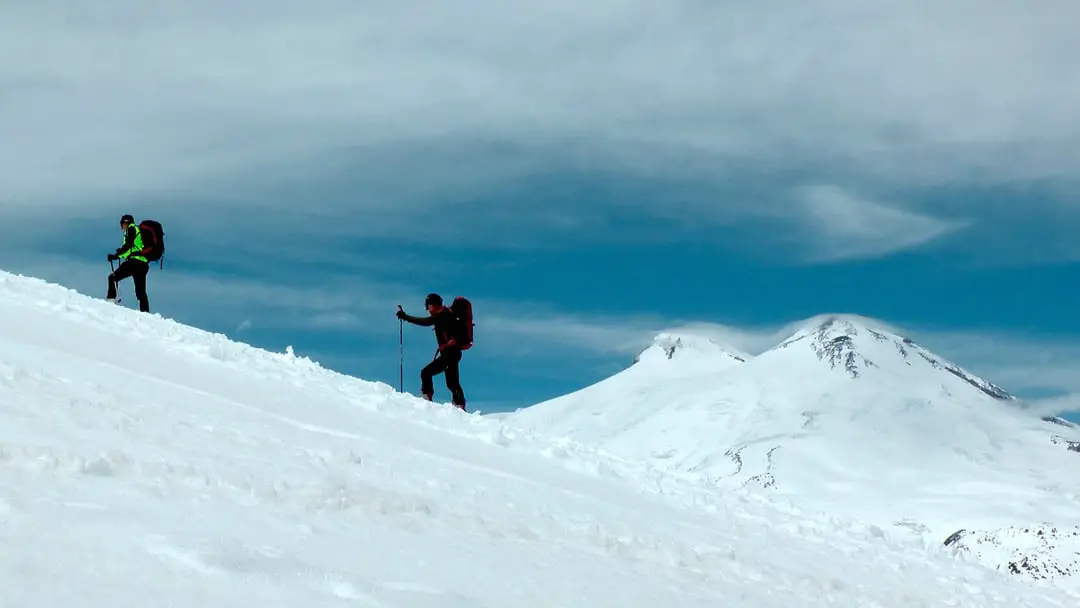
Active Leisure and Extreme Sport: Моя Россия Blog
In this text, Tajik blogger Roxana Burkhanova describes, in Russian, the tradition of taking extreme camping trips in Russia and other countries of the former USSR. The text was originally writen in 2015 and thus references times when, for instance, travel between Russia and Ukraine was common place. Today this is no longer the case, […]
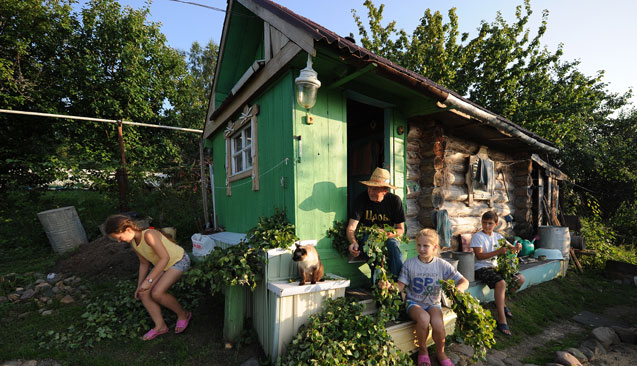
Holidays in Russian Culture: Моя Россия Blog
In this text, Tajik blogger Roxana Burkhanova describes, in Russian, the place of holidays in Russian culture. She focuses on the two major holiday seasons: the New Year’s holidays and the May Holidays. The text was originally written in 2015 and thus references times before the current war. However, the vocabulary and the general cultural […]
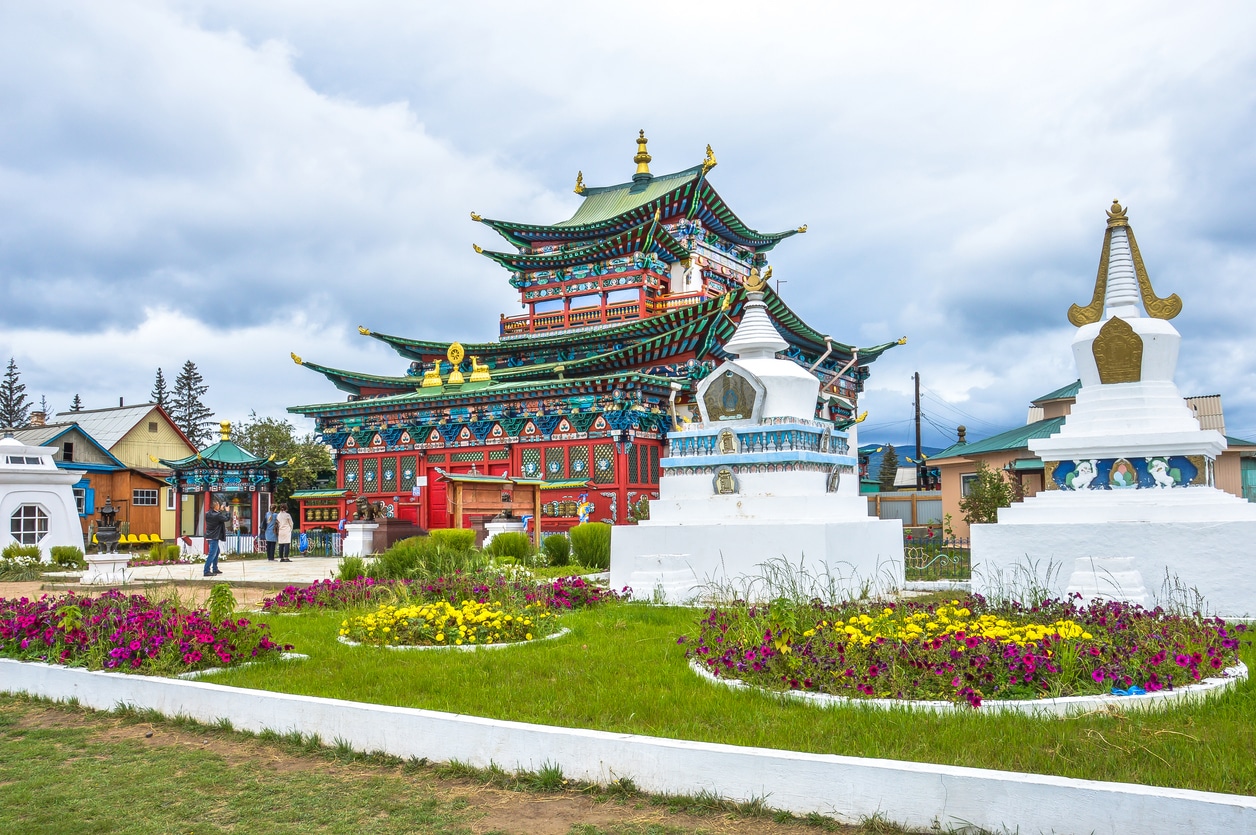
The Surprising Story of Russian Buddhism: Моя Россия Blog
In this text, Tajik blogger Roxana Burkhanova describes, in Russian, the history and current status of Buddhism in Russia. Buddhism is a small but historically important minority faith in Russia, especially in the Southern regions of Tuva, Buryatia, and Kalmykia. The material below details both the challenges that Buddhists have faced in integrating to wider […]
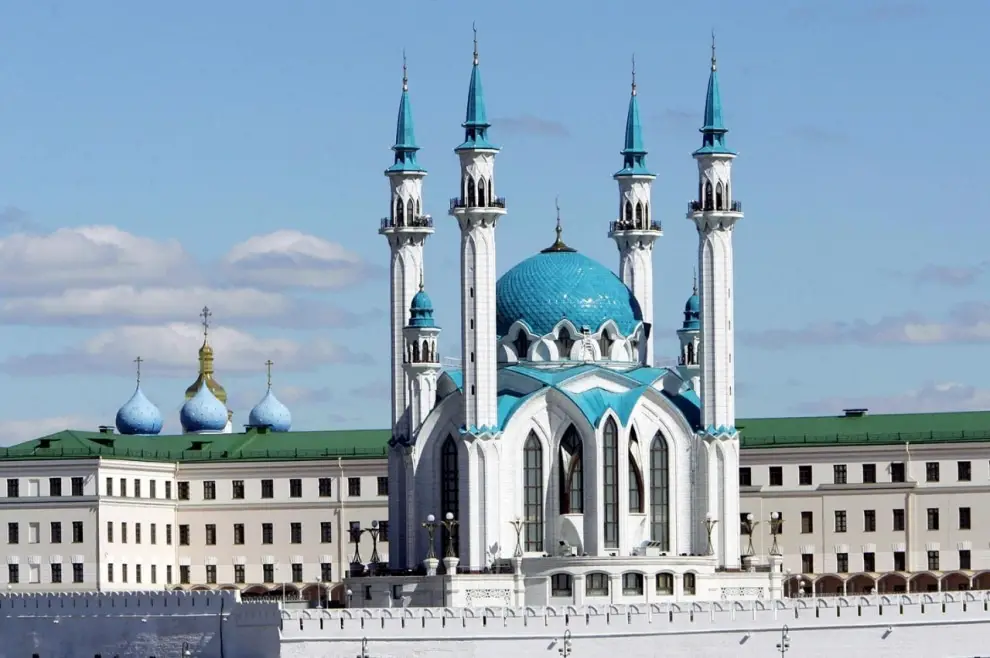
Islam in Russia: Моя Россия Blog
In this text, Tajik blogger Roxana Burkhanova describes, in Russian, the history and current status of Muslims in Russia. Islam is the largest minority faith in Russia and Muslims are a growing and important demographic there, especially among immigrants from Central Asia. The material below details both the challenges that Muslims have faced in integrating […]




